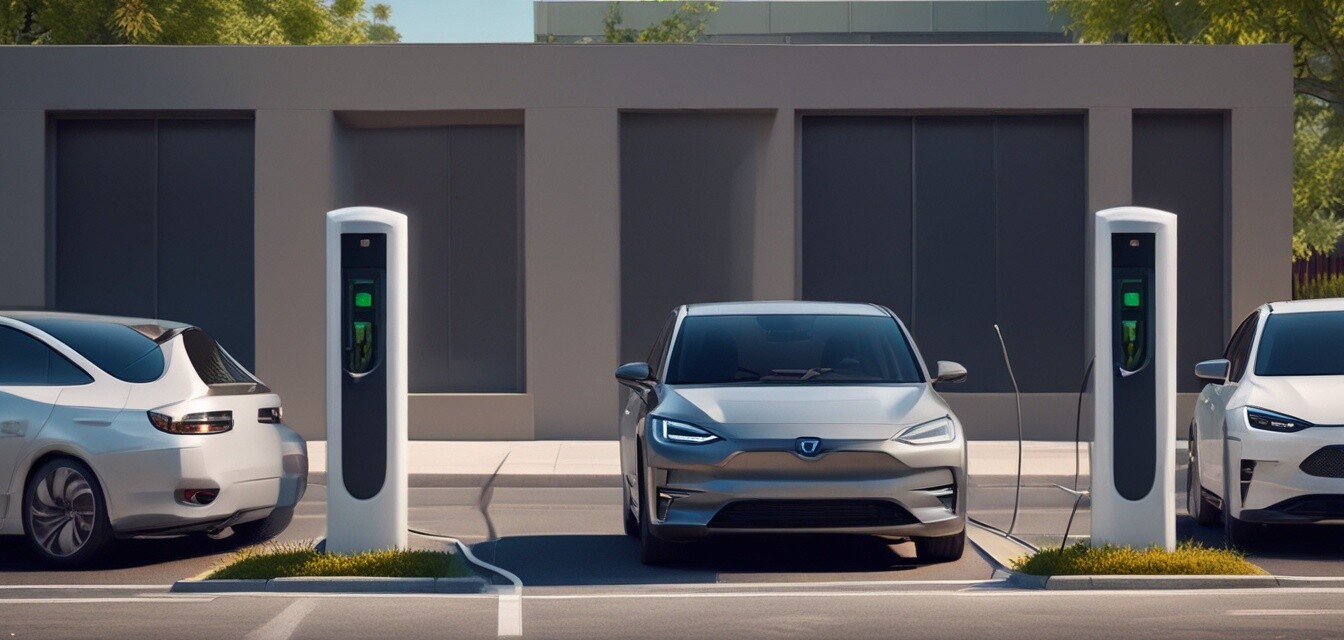
The Ultimate Comparison of Level 1 vs Level 2 EV Chargers
- Level 1 chargers are suitable for overnight charging, while Level 2 chargers offer faster charging times.
- Consider installation costs and DIY options when choosing a charger for your home.
- Compatibility with your EV and smart features can influence your decision.
Choosing the right electric vehicle (EV) charger can be overwhelming, especially with the rise of different options on the market. This guide will help you navigate the comparison between Level 1 and Level 2 chargers by detailing their differences in speed, cost, installation requirements, and more. Whether you're looking to charge at home or on the go, understanding these differences will empower you to make an informed decision.
Understanding Electric Vehicle Chargers
Electric vehicle chargers are essential for keeping your EV powered and ready for use. There are two primary types of home chargers: Level 1 and Level 2. Each has its unique benefits and drawbacks, catering to different charging needs.
What is a Level 1 Charger?
Level 1 chargers use a standard 120-volt outlet, making them easily accessible at most homes. They are ideal for overnight charging. Below are some key specifications:
| Characteristic | Details |
|---|---|
| Voltage | 120 volts |
| Charging Time | 8 to 12 hours |
| Installation | No special installation needed; can use standard outlets |
| Cost | Usually lower, starting from $300 |
What is a Level 2 Charger?
Level 2 chargers operate on a 240-volt outlet, allowing for faster charging. This type is great for daily use and is generally recommended for most EV owners. Here's what you need to know:
| Characteristic | Details |
|---|---|
| Voltage | 240 volts |
| Charging Time | 4 to 6 hours |
| Installation | May require professional installation |
| Cost | Higher, typically around $500 to $1,500 |
Comparison Table of Level 1 vs Level 2 Chargers
| Feature | Level 1 Charger | Level 2 Charger |
|---|---|---|
| Voltage | 120V | 240V |
| Charging Time | 8-12 hours | 4-6 hours |
| Installation Cost | Low (DIY possible) | High (professional installation recommended) |
| Best Use Case | Overnight charging | Daily use and quicker top-ups |
Installation Insights
DIY vs. Professional Installation
When considering installation for your charger, you can opt for a DIY approach or hire a professional. Here's what you should know:
- Level 1 Chargers: Usually just require plugging into an existing outlet, no additional installation.
- Level 2 Chargers: May require upgrades to your electrical system, which is best handled by a professional.
Cost Overview
The cost of installation can greatly vary. A breakdown of potential costs helps you budget appropriately:
- Level 1 Charger: Approximately $300 to $600 including unit cost.
- Level 2 Charger: Anywhere from $500 to $2,000, depending on installation complexities.
Key Factors to Consider
Charging Speed and Compatibility
When deciding on a charger, consider both charging speed and whether it’s compatible with your specific EV model. Many Level 2 chargers also offer smart features, allowing you to monitor your charging via a smartphone app.
Cable Length and Plug Types
Check the length of the charging cable and plug type, which plays a crucial role in the placement of your charger. Ensure compatibility with your vehicle's charging port to ease the charging process.
Looking to the Future
As the electric vehicle industry continues to grow, advancements in charger technology are expected. Keep an eye on evolving trends that promise faster charging solutions and greater energy efficiency.
Conclusion
Making the right choice between Level 1 and Level 2 chargers is essential for enhancing your electric vehicle experience. By understanding the differences in charging speed, installation requirements, and costs, you can select a charger that best fits your needs and lifestyle. For further reading on buying electric vehicle chargers, check out our Electric Vehicle Charger Buying Guides.

